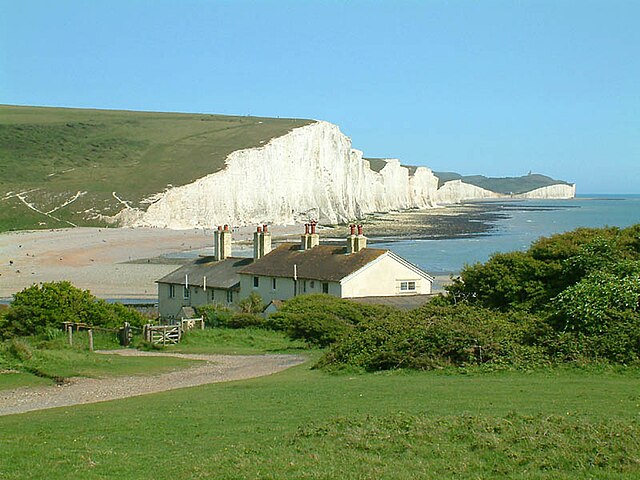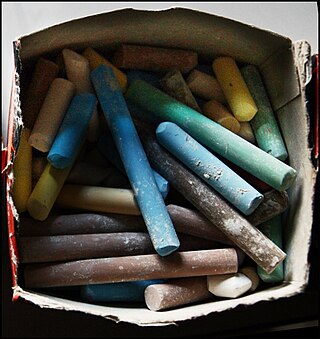Chalk
soft, white, porous sedimentary rock From Wikipedia, the free encyclopedia
Remove ads
Chalk is a type of limestone. It was made by calcareous (CaCO3) skeletons of tiny planktonic algae called coccoliths. They live in the sea in huge numbers. They make chalk (CO2) as a by-product of their photosynthesis. The chalk cliffs of Dover and elsewhere were made when England was below the equator in a tropical sea. It was in the Upper Cretaceous, when the Earth was even warmer than now. There are coccoliths today, but not the same species as formed the white cliffs.


Air and water do not wear chalk away easily, so when chalk is next to the sea, it often makes a large cliff. The "White Cliffs of Dover" in Kent, England are a good example of this. Chalk holds water, so these chalk hills may have a lot of water in them. When the weather is very dry, water comes slowly from the chalk.
Blackboard chalk is not real chalk. It is really gypsum (calcium sulfate), but people call it "chalk". People use it for drawing on hard things, because it is soft. If this chalk is rubbed on something hard or rough, it will leave a mark. People often write with chalk on a chalkboard or blackboard. A chalk eraser or water can be used to clean the chalk marks away so the board is clean again. Shops usually sell blackboard chalk in sticks that are about 5 cm long.
There are also big pieces of soft chalk for children to write on the ground with, for example on concrete (such as a sidewalk) or on asphalt. It is usually okay to write on the ground with this kind of chalk, because the rain will wash the chalk away.
Tailors' chalk is not real chalk either. It is talc (magnesium silicate). Tailors use it to draw on material when they are making clothes.
Remove ads
Wikiwand - on
Seamless Wikipedia browsing. On steroids.
Remove ads
